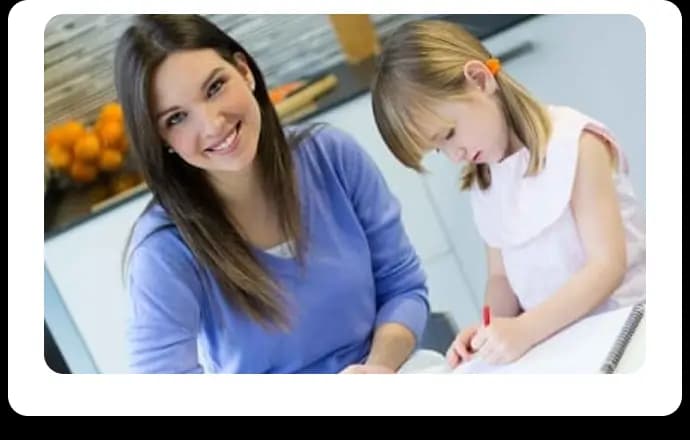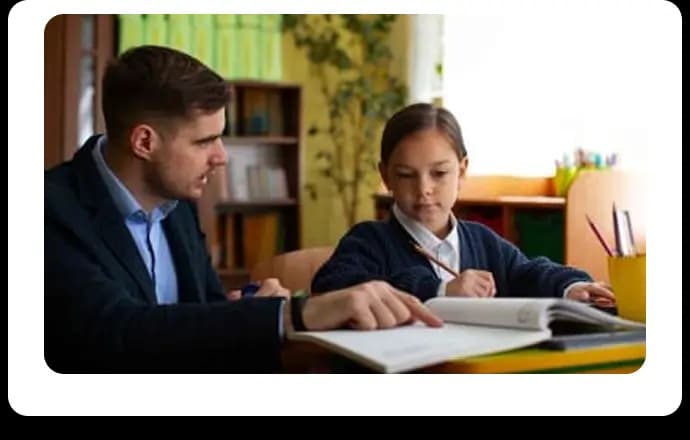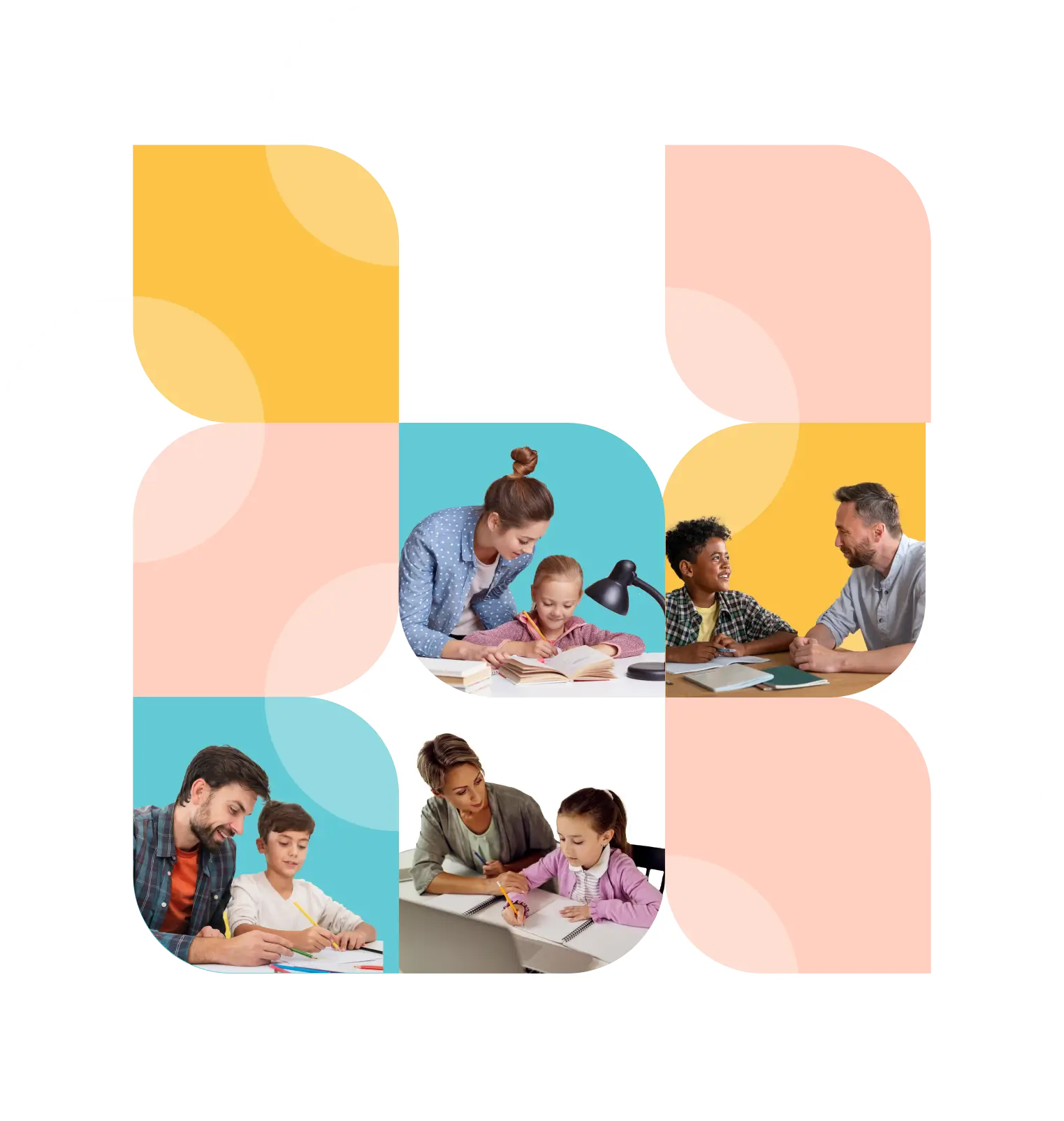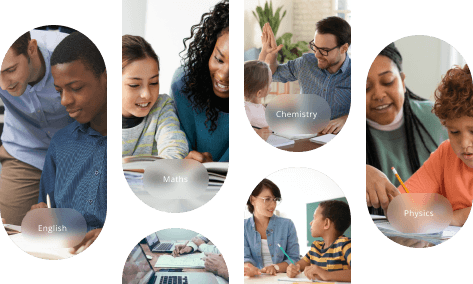Featured In-Person Tutors Local To You
Our In-Person Tutors Have Graduated From






How our Award-Winning In-Person Tutoring Works

While selecting your tutor, our team will help tailor an academic plan that aligns with your student’s grade level, subject requirements, and personal learning style. We cover all core subjects, including:
- Math: From foundational arithmetic through algebra, geometry, calculus, and advanced topics.
- English Language Arts (ELA): Reading comprehension, grammar, spelling, vocabulary, writing, and literature.
- Science: Life science, earth science, chemistry, physics, and hands-on experiments.
- Social Studies: History, geography, civics, economics, and world cultures.
Our tutors adapt lessons to fit your student’s goals and provide flexible, personalized instruction.
In addition to core subjects, we also offer a wide range of enrichment and elective courses to spark creativity and broaden skills:
- Art & Music: Visual arts, music appreciation, and performance-based activities.
- Physical Education: Fitness routines, motor skills, and healthy habits.
- Foreign Languages: Spanish, French, and more, taught through immersive methods.
- STEM & Technology: Coding, robotics, engineering, and critical thinking challenges.
In-Person Tutors For All Grade Levels & Subjects
Our Programs

Package Plans (10, 20, or 30 Hours)
Purchase a block of tutoring hours that can be used across any subject or grade level. Great for families who want consistent, structured support without a long-term commitment.

Semester Plan
Secure a dedicated tutor for an entire semester. This plan provides continuity, structure, and the opportunity to build lasting progress toward academic goals.

Annual Plan
Our most comprehensive option, designed for families who want a tutor committed for the full school year. Ensure stability, long-term growth, and complete academic support across all subjects.

